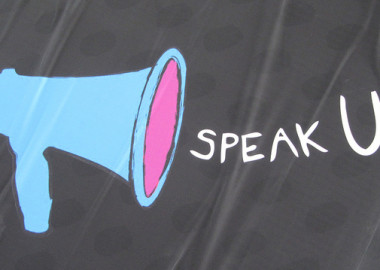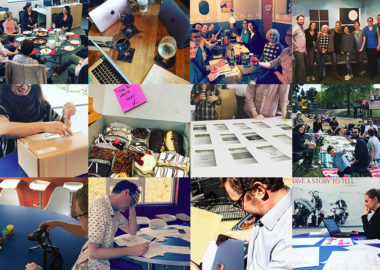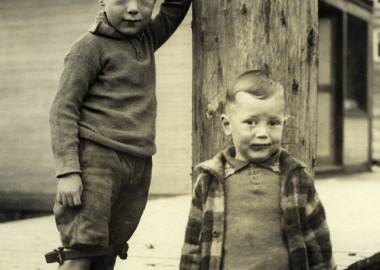
Why celebrate a company anniversary? When it comes right down to it, why celebrate anything at all?
The Internet is full of passably good suggestions for ways to celebrate a company anniversary or other corporate milestone:
- You could, ahem, commission a team of expert writers, editors, and designers to tell your story with a book, magazine, or innovative digital campaign.
- You could produce a video that talks up your values and history.
- You could design a commemorative tchotchke — an anniversary clock makes a “timely and trendy gift” — and give it to employees and clients alike.
- You could create an interactive timeline. The feature would form part of your website and link to your intranet.
- Or you could craft a series of social media posts that get the word out about your corporate milestone. Digital technologies make it easy to share your message with the world.
There are a thousand ways to celebrate a company anniversary, but I’ll save us the tedium of a longer list. (Most of the suggestions will only put you off celebration.) Anyway, if you’re like me, the pens and calendars, the logo-emblazoned coffee mugs — the “what” of a company milestone — is much less interesting than the “why.”
If you’re like me, the pens and calendars, the logo-emblazoned coffee mugs — the “what” of a company milestone — is much less interesting than the “why”
So, why celebrate a company anniversary? When it comes right down to it, why celebrate anything at all?
It may seem a silly question, but it’s one worth asking. If, in your organization, it’s fallen to you to do the research and make the recommendations, a few minutes on these big questions will prevent plenty of headaches as you form your plans.
Let’s jump right in (to the deep end).
OBJECTIVELY, OUR LIVES ARE MEANINGLESS
When you think about it, the objective math of our existence is terrifying. We belong to a species of intelligent primates, lately evolved, at home within a narrow climatic range, on a planet that is
- spinning on its axis at 1,600 kilometres an hour
- orbiting the sun at 107,000 kilometres an hour
- and suspended in a solar system itself sailing through the void of space at 792,000 kilometres per hour.
It looks something like this:
The image describes what the writer Adam Gopnik calls “deep time” — the vast temporal abyss in which planets orbit, continents drift, and species evolve. “The tragedy of life,” says Gopnik, “is not that there is no God but that the generations through which it progresses are too tiny to count very much.”
He has a point. The sun and Earth, remember, are 4,500,000,000 years old. Turns out our problem isn’t finding meaning as much as it is standing up against the obliterating scale of time.
AND SUBJECTIVELY, THEY MEAN TOO MUCH
Thankfully, we human beings can’t really keep our heads in deep time. Our lives take place, day to day, in opposite territory: “quick time,” the “gnat’s-breath, hummingbird-heart time of creaturely existence.”
Quick time is the locus of our smallest trials, triumphs, and, too often, boredoms. It’s the subjective foreground of our lives, the fabric from which every toothache, company anniversary (sorry), rushed breakfast burrito, children’s birthday, IKEA trip, and Netflix binge is woven.

Quick time is where humans safeguard their meaning, moment to moment, against the background of eternity. But quick time causes as big a problem as it solves: viewed through so microscopic a lens, our lives often seem to mean too much. A surfeit of hourly and daily ups and downs leaves us congested with the requirements of consciousness, and diminished in our ability to discern (much less celebrate) the true (deepish) arc of life.
It’s an axiom for a reason: When meaning is everywhere, it’s nowhere.
MILESTONES: NEITHER TOO MUCH NOR TOO LITTLE
We know how Goldilocks would deal with a choice between two unpalatable options. Instinctively repelled by the measureless sweep of deep time (too cold) and unable to keep up with the ticking ferment of quick time (too hot), she’d smartly select the middle way.

Her warm porridge lesson is that, in cosmology as in breakfast, there’s wisdom to things at an approachable scale. (Meaning, neither nowhere nor everywhere — simply somewhere.)
This is where milestones come in. The events dearest to us — those most worthy of commemorating — often take their own shape and occur at their own pace. A milestone isn’t beholden to the calendar; it can be a birthday or anniversary, of course, but it can’t be every one. Fifty years of marriage, 75 years in business, 150 years of confederation — by taking the longer view, a milestone wisely charts this middle path of meaning.
A milestone isn’t beholden to the calendar; it can be a birthday or anniversary, of course, but it can’t be every one. By taking the longer view, a milestone wisely charts this middle path of meaning.
And in doing so, it affords us the valuable opportunity to stop, look around, and appreciate the most perplexing of gifts: life itself. That means, thrillingly, we get to make of them what we will. We are the storytellers — or, as Willy Wonka put it, “We are the music makers, we are the dreamers of dreams.”
SO WHY DO WE (REALLY) CELEBRATE?
First and foremost, we celebrate milestones because we can.
We celebrate milestones because they assert our existence.
We celebrate milestones because they provide us a place to salve wounds and mark progress, to fix location and repair course, to both honour our forebears and cherish our descendants.
We celebrate milestones because our solar system is traveling at 792,000 kilometres an hour.
Which is to say, we celebrate milestones because they’re a tiny, frail, human victory over the roaring indifference of the universe. Come to think of it, that would make a fine slogan for a keepsake coffee mug, no?






